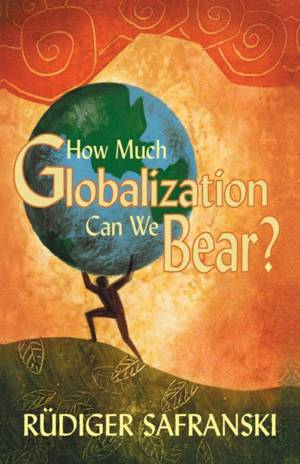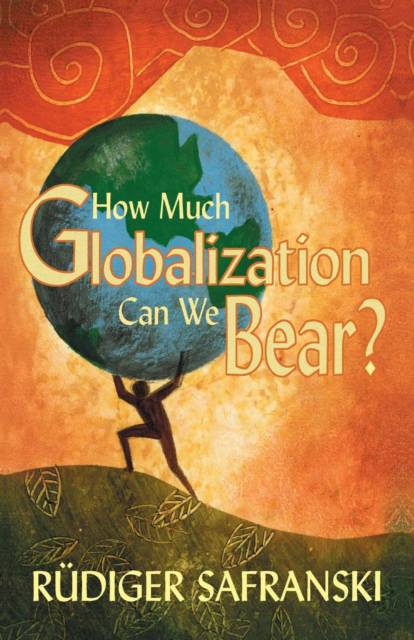
- Afhalen na 1 uur in een winkel met voorraad
- Gratis thuislevering in België vanaf € 30
- Ruim aanbod met 7 miljoen producten
- Afhalen na 1 uur in een winkel met voorraad
- Gratis thuislevering in België vanaf € 30
- Ruim aanbod met 7 miljoen producten
Zoeken
Omschrijving
According to current deabtes, 'individualization' has frequently been proposed as the conceptual counterpart to 'globalization'. It has often seemed that nothing would be left once these processes have fully unfolded, other than individual human atoms dispersed on a globe without any political, economic or cultural structures.
Regardless of whether this description is based on any good and valid observation, nobody drew the conclusion that suddenly emerges as evident after reading Rudiger Safranski's lucid and timely exploration of the issue: globalization, if it occurs, means a radical change in the human condition. It brings human being in direct confrontation with the world in its totality. Almost unnoticed in broader debate, the scenario of globalization entails a return - in new a radical guise - of the time-honoured question of the ways of being-in-the-world of human beings.
In this compelling new book, the philosopher Rudiger Safranski grapples with the pressing problems of the global age: 'Big Brother' states, terrorism, international security and the seeming impossibility of 'world' peace. He suggests that the era ofglobalization should not be thought of as that epoch in world history in which all human beings will see themselves in the same, indistinct situation. There will always be, Sanfranski argues, some need for understanding one's own situation by drawing boundaries and conceptualizing 'otherness' and individuality.
Regardless of whether this description is based on any good and valid observation, nobody drew the conclusion that suddenly emerges as evident after reading Rudiger Safranski's lucid and timely exploration of the issue: globalization, if it occurs, means a radical change in the human condition. It brings human being in direct confrontation with the world in its totality. Almost unnoticed in broader debate, the scenario of globalization entails a return - in new a radical guise - of the time-honoured question of the ways of being-in-the-world of human beings.
In this compelling new book, the philosopher Rudiger Safranski grapples with the pressing problems of the global age: 'Big Brother' states, terrorism, international security and the seeming impossibility of 'world' peace. He suggests that the era ofglobalization should not be thought of as that epoch in world history in which all human beings will see themselves in the same, indistinct situation. There will always be, Sanfranski argues, some need for understanding one's own situation by drawing boundaries and conceptualizing 'otherness' and individuality.
Specificaties
Betrokkenen
- Auteur(s):
- Vertaler(s):
- Uitgeverij:
Inhoud
- Aantal bladzijden:
- 100
- Taal:
- Engels
Eigenschappen
- Productcode (EAN):
- 9780745633893
- Verschijningsdatum:
- 13/01/2006
- Uitvoering:
- Paperback
- Formaat:
- Trade paperback (VS)
- Afmetingen:
- 164 mm x 217 mm
- Gewicht:
- 136 g

Alleen bij Standaard Boekhandel
+ 63 punten op je klantenkaart van Standaard Boekhandel
Beoordelingen
We publiceren alleen reviews die voldoen aan de voorwaarden voor reviews. Bekijk onze voorwaarden voor reviews.











